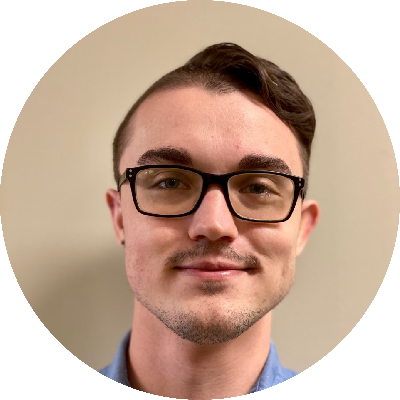
Nathan Board
For over 38 million people worldwide living with HIV-1, antiretroviral therapy (ART) must be continued indefinitely to prevent progression to AIDS. Although ART can effectively suppress viral replication and prevent or reverse immunodeficiency in most individuals, it is not curative due to the persistence of a rare population of infected cells harboring integrated and transcriptionally inactive HIV-1 genomes referred to as the latent reservoir. A promising therapeutic approach to achieving a cure for HIV-1 is known as “shock and kill.” This approach involves selectively inducing HIV-1 gene expression (“shock”) followed by immune-mediated elimination of infected reservoir cells (“kill”). Despite therapeutic advances in reversing HIV-1 latency, no significant reduction in the latent reservoir has ever been clinically observed. Prior studies suggest that this apparent lack of reservoir elimination following latency reversal may stem from inefficient killing of reservoir cells by cytolytic immune effector cells. Therefore, to ensure effective clearance of HIV-1-infected cells in the context of “shock and kill,” novel immunotherapies must be developed to enhance HIV-1-specific cell-mediated cytolytic activity.
My research in Robert and Janet Siliciano’s lab focuses on the development and functional characterization of novel bispecific antibodies, a type of immunotherapy used to enhance cell-mediated killing of specific target cell populations. These bispecific antibodies were designed to promote targeted engagement and lysis of HIV-1-infected cells by cytolytic natural killer (NK) cells. My colleagues and I have demonstrated the ability of the bispecific antibodies to mediate robust killing of HIV-1 reservoir cells using both primary cells from persons living with HIV-1 and animal models of HIV-1 infection. Thus, these bispecific antibodies represent promising preclinical candidates for therapeutic HIV-1 reservoir size reduction in combination with other agents for latency reversal.
Questions & Answers
Why did you choose Johns Hopkins for your work?
I chose Johns Hopkins for my graduate training because of the outstanding quality of its research into human diseases and the delightfully collegial nature of its research environment. At Johns Hopkins, I have had the opportunity to engage and collaborate with world leaders in the fields of immunology and infectious diseases. These interactions have greatly influenced how I think about science and helped provide me with confidence to pursue a career in academic research. My experiences at Johns Hopkins throughout my graduate training have made incredibly positive impacts on both my personal and professional lives. What does receiving this award mean to you personally and professionally? Do you have any connection with the particular award you received? I am honored and excited to receive this award recognizing the hard work that I, other trainees in the Siliciano lab and our collaborators have contributed to this research project. For me, it is particularly rewarding to receive the Mette Strand Research Award. Strand’s early insights into HIV pathogenesis and pioneering usage of antibodies for immune-mediated killing of tumor cells undoubtedly helped to shape the modern bodies of research that this work drew its inspiration from. Moving forward in my scientific career, I will take motivation from Strand’s dedication to advancing our understanding and treatment of human diseases.
What contributed to your project’s success?
A major factor in the success of my project was the excellent mentorship of my advisers, Drs. Robert and Janet Siliciano. From the very start of my graduate research, they have strongly encouraged and supported my project, despite it representing a new direction for the lab outside their traditional area of expertise. The freedom in direction they have afforded me has ingrained strong senses of independence, creativity and innovation in research that will persist with me for the rest of my career in science. I must also thank the highly collaborative environment of the Siliciano lab for my project’s success. This project was a team-based effort and would not have been possible without the contributions of several other graduate and undergraduate students. Having the opportunity to regularly work with and bounce ideas off of other talented and bright-minded trainees ultimately had important constructive influences on the long-term direction and outcomes of this project.
What thoughts do you have about Young Investigators’ Day itself, as a celebration of the roles student and fellows play in research at Johns Hopkins?
Young Investigators’ Day is a wonderful means of recognizing and showcasing the research of the talented community of students and fellows here at Johns Hopkins. This program speaks volumes to the commitment Johns Hopkins has to supporting the growth of its trainees and inspiring future generations of scientists.
What has been your best/most memorable experience while at Johns Hopkins?
My most memorable experiences at Johns Hopkins were those involving my fellow graduate students. Throughout my training, I have been privileged to meet so many exceptional young scientific minds who have continually challenged me to be my best self and who I am confident will help to shape the future of science. The professional and personal relationships I have developed during my time at Johns Hopkins are certain to last throughout my lifetime.
What are your plans over the next year or so?
I plan to graduate this summer and am currently looking into possibilities for exciting future career paths in research science.
Tell me something interesting about yourself that makes you unique. Do you have any special hobbies, interests or life experiences?
I’ve always had a deep appreciation of tabletop games (board games, card games, role-playing games, etc.) for their ability to bring people together to have fun, share meaningful experiences, and inspire diverse creative and critical modes of thought. I currently own over 100 games and don’t plan to stop buying new ones anytime soon.